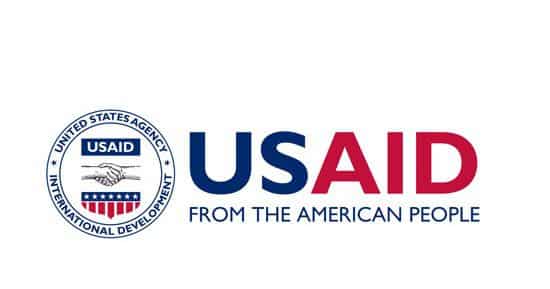WASHINGTON, USA — At COP27, USAID Administrator Samantha Power reaffirmed USAID’s commitment to the Agriculture Innovation Mission for Climate (AIM for Climate) initiative, highlighting another installment of $43 million in line with AIM for Climate objectives.
This investment will advance innovations for climate smart food systems to protect the yield and quality of crops and livestock from climate change, such as climate-responsive dryland grasses that can withstand reduced rainfall and improved maize varieties that produce higher yields in harsher conditions.
Additionally, USAID is partnering with the State Department to launch a new USAID Methane Accelerator program that will mainstream and scale up methane mitigation programming across the Agency. Methane emissions, including emissions from the agricultural sector, are supercharging global warming. Subject to Congressional Notification, USAID and the Department of State will dedicate $12 million to this program, with the goal of leveraging substantial additional resources.
Administrator Power also announced two new AIM for Climate Innovation Sprints and USAID partnerships that will increase private sector investments in climate smart food systems:
Bayer Crop Science and the International Rice Research Institute: USAID is partnering with Bayer Crop Science and the International Rice Research Institute on an Innovation Sprint to improve the quality of life of smallholder rice farmers through the introduction, on-farm testing, and scaling of improved, climate-smart rice varieties that are sown directly in the field as opposed to the labor-intensive process of transplanting seedlings by hand. Bayer has committed up to $4 million of in-kind support.
Olam Food Ingredients (ofi) and partners: USAID, ofi, Nestlé, Mars Wrigley, Costco Wholesale, Mondelēz International, and Blommer Chocolate Company have launched RESTORE: “Resilient Ecosystems and Sustainable Transformation of Rural Economies”, that will help smallholder cocoa farmers use more climate-smart agricultural practices. Through this Innovation Sprint, Ofi and partners are investing $7 million towards this effort to support 15,000 cocoa farmers by 2027, of which at least 25% will be women.
At last year’s COP, President Biden launched the AIM for Climate (link is external) – an initiative led by the United States and the United Arab Emirates to increase research and development for climate-smart agriculture and food systems. USAID is playing a leading role in AIM for Climate along with the U.S. Department of Agriculture and the State Department’s Office of the Special Presidential Envoy for Climate (SPEC).
USAID committed to advancing AIM for Climate through investing in climate smart food systems in 2021. This included $215 million to help 200 million people in South Asia and sub-Saharan Africa raise agricultural productivity by 25 percent by 2030 through investments in the critical work of CGIAR, a global research partnership for a food-secure future. USAID also committed to investing in new research through two Feed the Future Innovations Labs, on Horticulture and Current and Emerging Threats to Crops, to ensure a pipeline of innovations that address climate resilient fruits and vegetables and mitigate the threat posed by pests and diseases that are increasing due to climate change.
USAID’s investments are helping improve the lives of smallholder farmers around the world. As one example, investments in improved maize varieties with tolerance to induced stress (drought, heat, and flooding) has led to a 25-30 percent yield increase in Africa as compared to non-stress tolerant varieties. As a result of this partnership with the Bill & Melinda Gates Foundation and the Foundation for Food & Agriculture Research, farmers across 13 countries in sub-Saharan Africa planted improved maize seed on seven million hectares, benefitting more than 44 million people.















